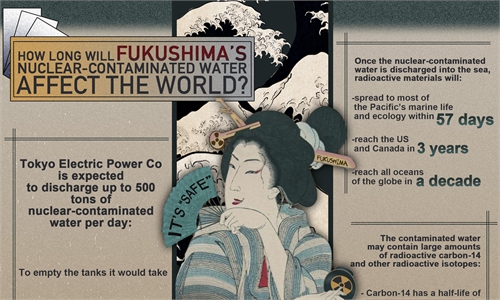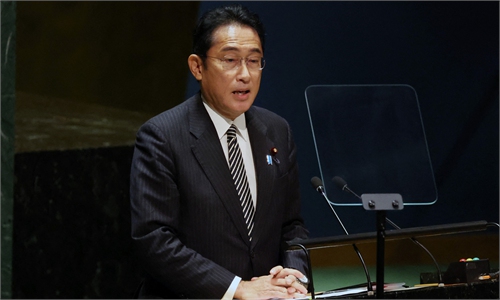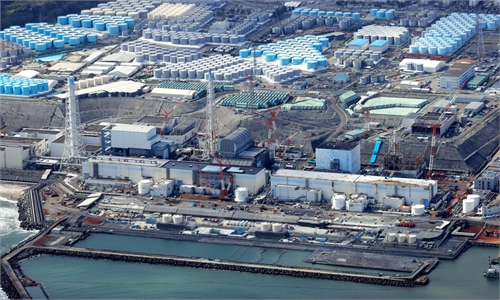Japan begins preparation works for nuclear-contaminated wastewater dump with ‘greater price to pay’
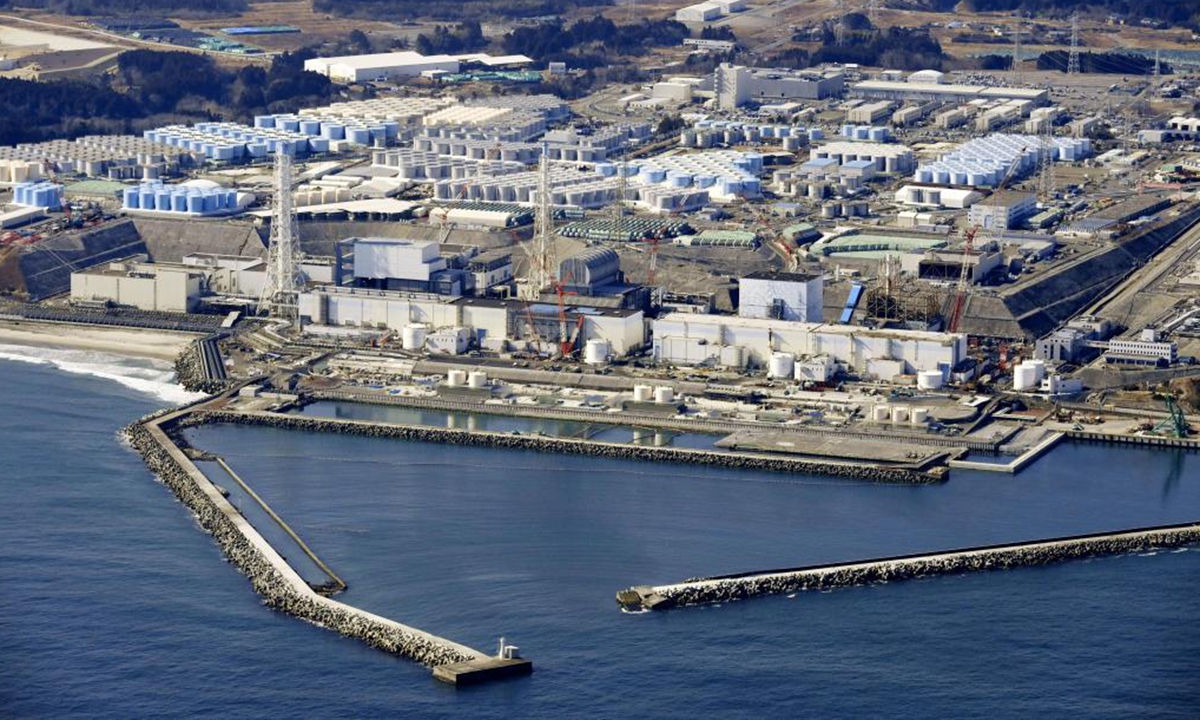
Tanks at the crippled Fukushima nuclear power plant store nuclear-contaminated wastewater. Photo: Xinhua
Japan's crippled Fukushima Daiichi nuclear power plant commenced the operation of equipment needed for its nuclear-contaminated wastewater dumping plan for the first time on Friday as a prelude to the wastewater's final release into the open ocean.
Experts warned that despite growing criticism from home and abroad, Japan will likely stick to its dumping plan either judging from its political considerations or from weighing the domestic technological and capital costs.
However, Japan has overlooked the long-lasting cost caused by the dumping plan which would be much heavier, that it would bring unimaginable harm to the world especially its surrounding regions, lose credibility as an environmentally friendly global power, and greatly harm its international image, not to mention sparking widespread dissatisfactions among its own people, some experts said.
According to the Japanese media Asahi Shimbun, the equipment involved has passed inspection by the Japanese Nuclear Regulation Authority on Wednesday and began its first operation on Friday.
The operation includes first stirring the radioactive wastewater and homogenizing the concentration of radioactive substances, after which the equipment will measure whether the substances other than tritium are below the standard value. It will take about two months to advance the measurement of the nuclear-contaminated wastewater.
Japan will begin dumping more than one million tons of irradiated water into the Pacific Ocean in spring or summer this year, the Japanese government confirmed in January, despite strong oppositions from within its country, and amongst neighbors, and the international community.
China, along with Russia, has presented a joint list of technical questions to Japan in November 2022, but the Japanese side has failed to answer either by distorting concepts, evading the crucial part or even refusing to talk about the matter, Chinese officials said on Thursday.
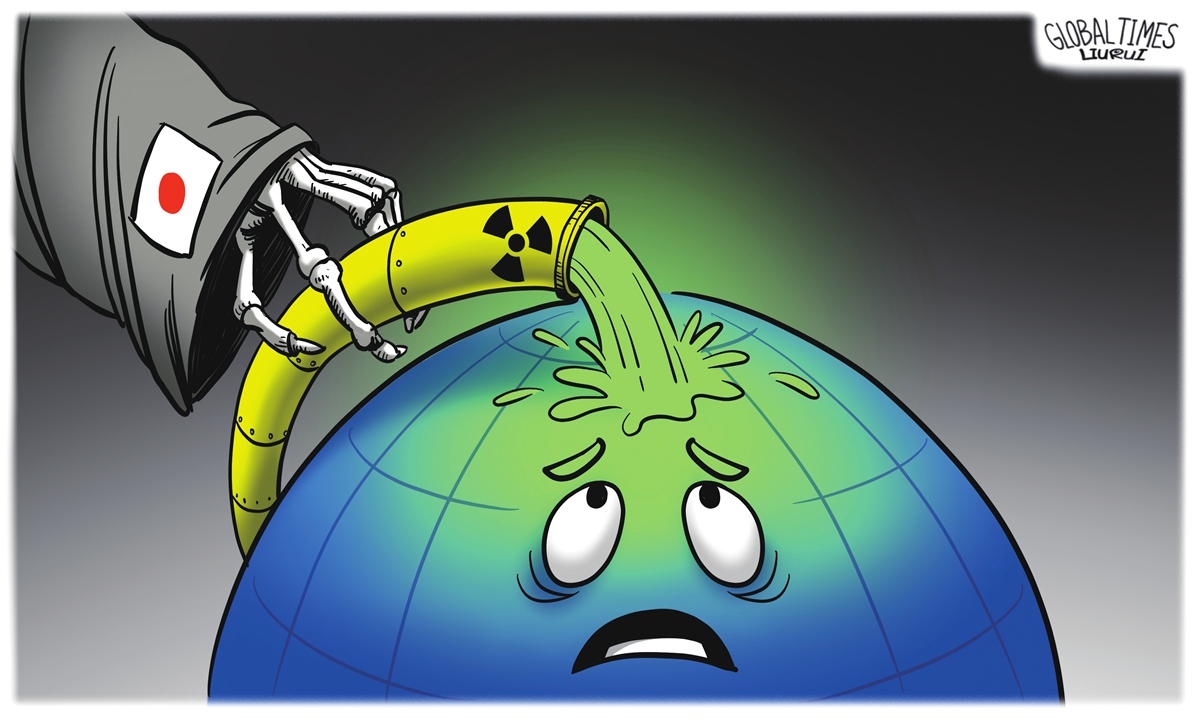
Illustration:Liu Rui/GT
The wastewater dumping plan initiated by Japan has gone beyond an environmental issue to a political one, with the US-led Western circles on one side and China, South Korea, Russia and some Southeast countries on the other. It is no longer only about the plan itself, but a political show to assert Japan's power and dominance over others, Da Zhigang, director of the Institute of Northeast Asian Studies at Heilongjiang Provincial Academy of Social Sciences, told the Global Times on Saturday.
On the environmental front, Japan has approved the construction of dilution and discharge facilities for nuclear-contaminated water when the International Atomic Energy Agency (IAEA) has neither completed its assessment of Japan's disposal plan nor drawn specific conclusions.
An initial assessment shows that the nuclear-contaminated wastewater contains more than 60 radionuclides including tritium. Some long-life radionuclides may spread in the ocean currents and have a bio-concentration effect, causing unpredictable harm to the marine environment, Sun Xiaobo, director-general of the Department of Arms Control of the Chinese Foreign Ministry, said on Thursday in Beijing.
The irresponsible and selfish decision has been met with backlash as rallies were held in Japan and many other countries and regions across the world.
However, the Kishida administration has chosen to only listen to the voices of its Western allies who are far from the involved area but ignore the outcry and questioning from its neighbors who will be directly affected by its decision, Da noted.
Japan will seek the endorsement of the G7 nations for its plan to dump the nuclear-contaminated water when it hosts a meeting of the group's energy ministers in April, the Japanese Times reported in February.
The Chinese Foreign Ministry on Tuesday once again denounced that Japan's unilateral decision to dump nuclear-contaminated wastewater into the sea, which is considered as a move of trying to shift the risk of nuclear pollution to all mankind. The ministry also warned the country of not starting the plan without full consultation with its neighbors and other stakeholders as well as relevant international institutions.
